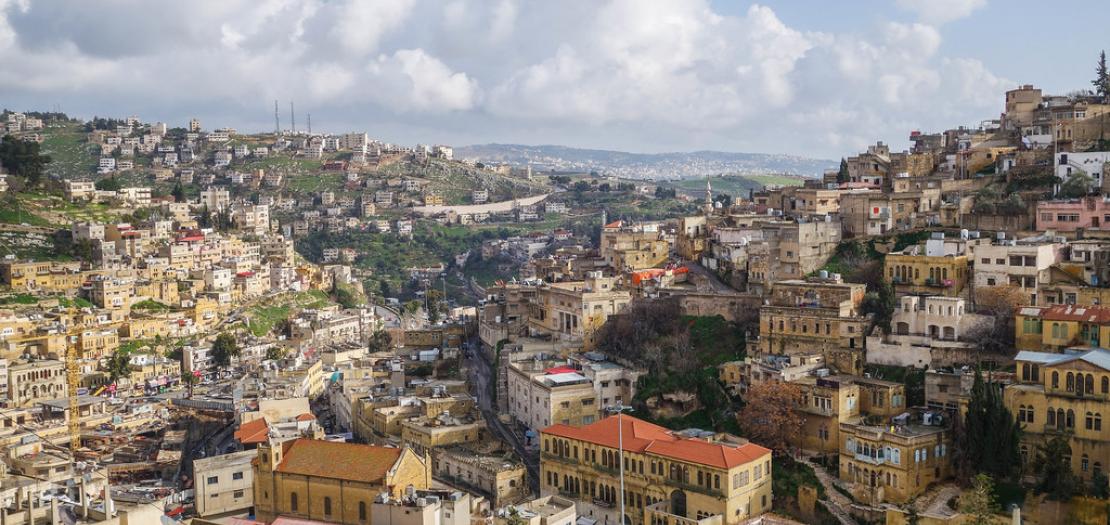Issued by the Catholic Center for Studies and Media - Jordan. Editor-in-chief Fr. Rif'at Bader - موقع أبونا abouna.org
Salt… a city of tolerance
In 2015, the United Nations Educational, Scientific and Cultural Organization (UNESCO) announced that the Baptism Site was added to the UNESCO World Heritage List. We were at the time jubilant and we prided ourselves in our dear Jordan. Yet, we were greatly saddened at the time by the failure of the Jordanian city of Salt to be added to the list. At a later time, I met with UNESCO Director-General Ms. Audrey Azoulay in Abu Dhabi. She told me that the result was not permanent and that according to the rules and recommendations, a relevant request could be presented at a later time. This was the case that we followed.
Two years ago, I participated in a cultural seminar at Salt Municipality, in the presence of late poet Jiries Samawi, with Salt Mayor Engineer Khalid Khashman who told us at the time that he would present the city of Salt for nomination to be added to the list as a city of harmony. That is why I was not surprised when an announcement was made regarding the addition of Salt to the list of the sites relevant to global heritage as a city of tolerance--to which I refer as a city of rural hospitality, rather than as of “civilized hospitality” as several media outlets referred to.
As for tolerance, it is a reflection of the beautiful reality and the important location that Salt has enjoyed over the years. There is an innate harmony among the residing people, especially between Muslims and Christians, as evidenced by numerous people who inhabited Salt in the past and who have all the time been viewing the city as a miniature of the present great Jordan which abounds with joy and brotherhood. Tolerance is an act of life before being intellectual influences and seminars. It is social harmony and mutual religious respect, as well as an educational act represented by students sitting next to other brothers in humanity, homeland, concerns and hopes. In Salt, the first Latin Patriarchate school was established in 1870, and it still provides non-profit services in its full capacity as an oasis of dialogue and harmony. It is actually a Hashemite school that marks its centenary, under the leadership of His Majesty King Abdullah Ibn Al- Hussein, who is well-known worldwide as one of the knights of tolerance, moderation and harmony.
As for its urban hospitality, Salt was welcoming merchants from various neighboring countries, as mentioned in the UNESCO statement, during which intellectual diwans were established which brought together Muslims and Christians together on the one hand, and welcomed delegations arriving from abroad on the other while performing hospitality that pleases guests and visitors.
Congratulations is extended to Jordan for this new achievement, as we have at present six sites posted on the UNESCO World Heritage List, namely Salt, Petra, Qasir Amra, Umm Ar-Rasas, Wadi Rum, and the Baptism Site. We can further relevant requests in the future, and this situation invites us to visit these sites to get closely acquainted with them, to export Jordan’s civilized image abroad, and to focus—prior to talking about heritage and antiquities—on showing the genuine image of the Jordanians who show tolerance towards others as well as enjoy innate hospitality which reflects their noble nature, customs, and traditions. I am sure that every Jordanian city from the north to the south of the country can follow the same model of Salt by being cities of tolerance and beacons to the world in cooperation among followers of religions.







